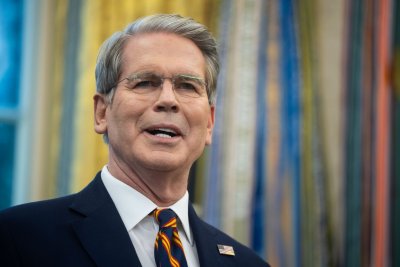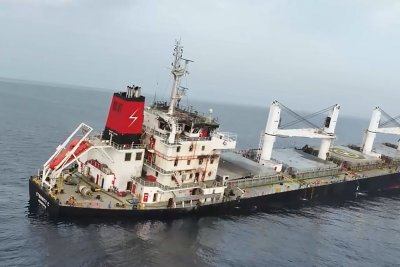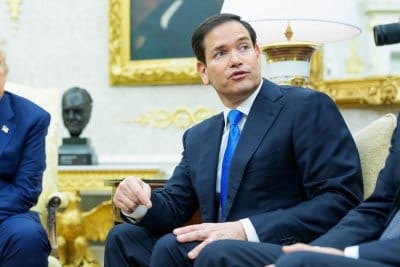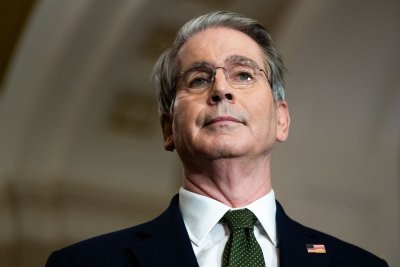China blacklists 5 U.S. subsidiaries of South Korean shipmaker Hanwha Ocean

China’s Commerce Ministry on Tuesday blacklisted five U.S. subsidiaries of South Korea’s Hanwha Ocean, whose Geoje shipyard is pictured here. File Photo courtesy of Hanwha Ocean
Oct. 14 (UPI) — China on Tuesday blacklisted five U.S. subsidiaries of South Korean shipmaker Hanwha Ocean, escalating the trade row between Beijing and Washington.
The countermeasures prohibit Chinese entities and individuals from engaging in business with Hanwha Ocean America in Houston, Texas; Hanwha Ocean USA in San Diego, Calif.; Hanwha Ocean Defense Systems in Norfolk, Va.; Hanwha Ocean Marine Engineering in New York City, N.Y.; and Hanwha Ocean Procurement Services in Bridgeport, Conn.
Beijing’s Commerce Ministry said the companies were blacklisted to counter actions the United States has taken against China targeting its maritime, logistics and shipbuilding sectors.
“These subsidiaries have assisted and supported relevant U.S. government investigations and actions, thereby endangering China’s sovereignty, security and development interests,” the ministry said in a statement.
China’s Ministry of Transport is also charging U.S.-linked vessels special port fees.
The countermeasures were announced as the first phase of fees the United States is leveling against China’s ship industry is to go into effect following findings of an April 2024 investigation launched by the U.S. Trade Representative under the previous Biden administration into China’s alleged unfair practices in the maritime, logistics and shipbuilding sectors.
The investigation was launched at the behest of five national labor unions accusing China of employing non-market policies far more aggressive and interventionist than employed by any other country in an effort to dominate the global shipbuilding, maritime and logistics sectors.
As remedy, the U.S. Trade Representative in March proposed services fees and port-entry fees against Chinese-origin ships, effective Tuesday.
A spokesperson for China’s Ministry of Commerce alleged to reporters Tuesday that the United States’ action “severely violates” World Trade Organization rules and “breaches the principle of equality and mutual benefit” of a 1980 agreement between Beijing and Washington concerning maritime transport cooperation.
“China has repeatedly express its strong dissatisfaction and firm opposition,” the spokesperson said, while accusing the United States of being unwilling to cooperate with Beijing on the matter.
“China’s countermeasures are necessary acts of passive defense and are aimed at maintaining the legitimate rights and interests of Chinese industries and enterprises, as well as the level playing-field of the international shipping and shipbuilding markets,” the spokesperson said.
“It is hoped the U.S. will face up to its mistake, move with China in the same direction and return to the right track of dialogue and consultation.”
U.S.-China trade relations, which deteriorated sharply during Trump’s first term, have further strained under his current administration, which has repeatedly imposed tariffs on Chinese goods that are being challenged in U.S. courts and at the World Trade Organization.
The two countries have been in a trade squabble since last week when Beijing’s Commerce Ministry announced tightened export restrictions on rare earth items and materials. In response, Trump announced a 100% tariff threat on his Truth Social media platform. China, whose imports are currently subject to a 30% tariff, responded by threatening to retaliate.
The back and forth comes after representatives from Washington and Beijing held trade talks in Beijing last month with prospects of further negotiations continuing this month in South Korea.
However, whether those discussions will take place on the sidelines of the Asia-Pacific Economic Cooperation forum in Gyeongju remains unclear.








